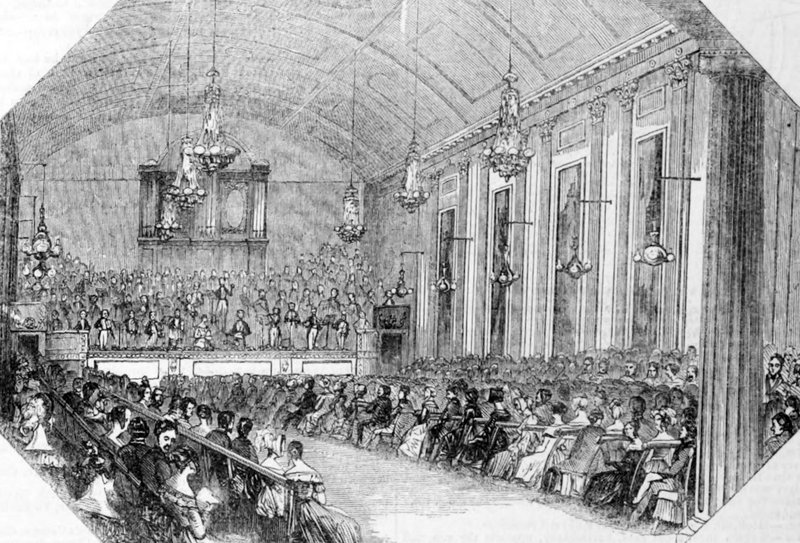
Deutsch English
Some of the leading music and theatre ensembles of 19th-century Europe were organised as cooperatives whose members worked together artistically as equals. Their contemporaries assigned great importance to the non-hierarchical organisation of artists. This historical phenomenon has been all but forgotten today, even though other forms of cooperative work have been the subject of research. The present project will shed light on the organisation and artistic working methods of leading cooperative ensembles, namely the London Philharmonic Society, the Paris Société des concerts du conservatoire and the Berlin theatre society Urania. It also aims to reintroduce historical, cooperative modes of working in the context of today’s artistic practices.
The practices of cooperative ensembles will be investigated in a source-based historical study, focusing on the fields of musicology, theatre studies, and the sociology of the arts. The findings thereby acquired will be put to a practical test in a cooperative research group including orchestral musicians from our project partner, the Freiburg Baroque Orchestra. The methodology of this cooperation will be based on the concept of creative research and will combine musical practices with qualitative tools from the social sciences.
The project’s findings will provide a basis for reevaluating the prevalence, function and historical significance of cooperative ensemble practices. Common assumptions about the superiority of hierarchical collaborations in the arts will be challenged, and cooperative work will be reintroduced to today’s music practices.
Illustration: The Philharmonic Society performing in the Hanover Square Rooms, from Illustrated London News, 1843 (Public Domain)